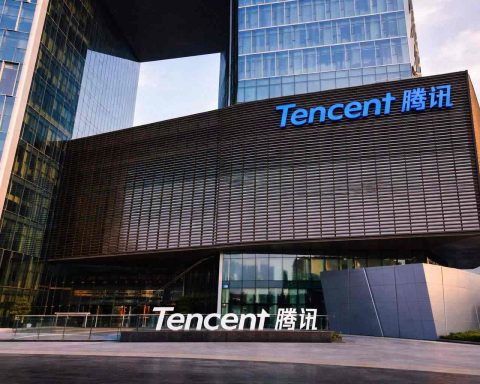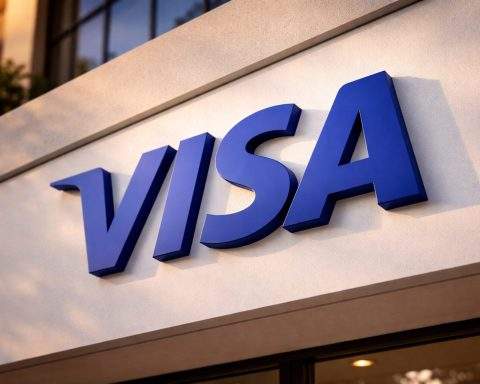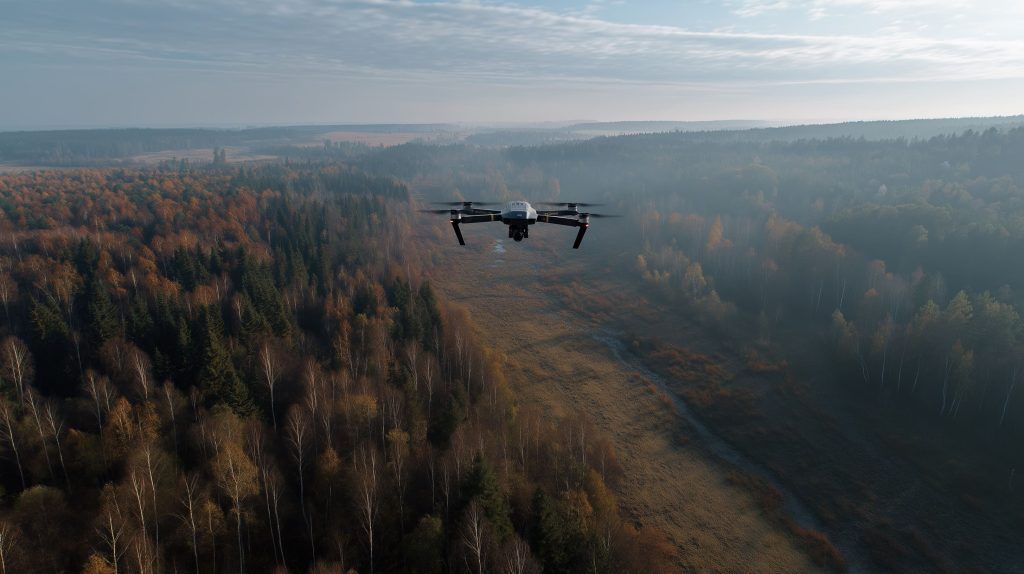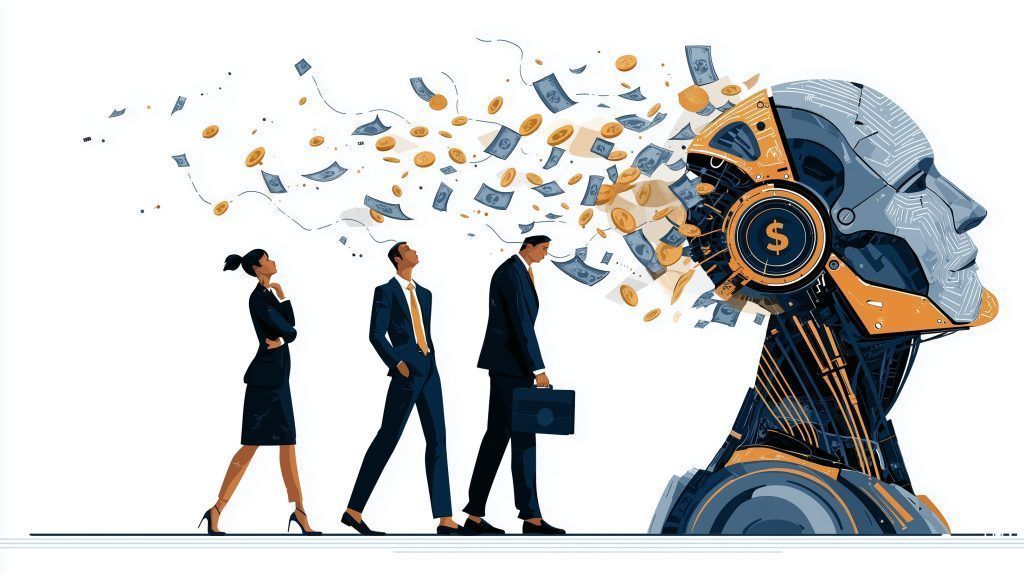- A viral AI deepfake song titled “Heart on My Sleeve” mimicked Drake and The Weeknd and racked up millions of streams before Universal Music Group demanded its removal.
- In June 2024, the RIAA and the Big Three labels (UMG, Sony, Warner) sued Suno and Udio for alleged en masse copyright infringement, seeking up to $150,000 per infringed work.
- Google opened public access to MusicLM via its AI Test Kitchen in mid-2023, and MusicLM was trained on about 280,000 hours of music.
- Meta released MusicGen under the Audiocraft project in 2023, trained on 20,000 hours of licensed music and able to produce 12-second stereo clips from text.
- OpenAI’s Jukebox, introduced in 2020, could generate full songs with vocals in the style of famous artists.
- Suno launched its public beta in April 2024, capable of producing realistic-sounding vocals in various styles.
- Udio publicly launched in April 2024, can generate entire songs with vocals, and the “BBL Drizzy” track reached 23 million views.
- Spotify removed tens of thousands of AI-generated tracks from Boomy in 2023, and in late 2024 co-president Gustav Söderström said AI music would stay on the platform if produced legally.
- In July 2023, U.S. Senators heard testimony urging explicit protections for artists’ voices and likenesses against AI replicas.
- The Velvet Sundown, an AI-generated act, reached about 350,000 monthly listeners on Spotify, with tracks appearing in Discover Weekly.
Latest News: AI Music Takes Center Stage in 2025
AI-generated music has moved from a niche experiment to a mainstream talking point, with headline-grabbing developments throughout 2024 and 2025. Viral “deepfake” songs have rocked the industry – notably a fake duet mimicking Drake and The Weeknd (“Heart on My Sleeve”) that racked up millions of streams before Universal Music Group (UMG) demanded its removal theguardian.com. Major labels have aggressively pushed back: in June 2024, the Recording Industry Association of America (RIAA) and the “Big Three” labels (UMG, Sony, and Warner) sued AI music startups Suno and Udio for “en masse” copyright infringement theverge.com theverge.com. The lawsuits accuse these text-to-music services of training on thousands of songs without permission, seeking up to $150,000 per infringed work en.wikipedia.org. RIAA’s chief legal officer Ken Doroshow didn’t mince words, calling it “unlicensed copying of sound recordings on a massive scale” and accusing the companies of hiding their infringement rather than operating on a “sound and lawful footing” theverge.com 1 .
On the flip side, tech giants and music companies are cautiously embracing AI. Google opened public access to its MusicLM system – which turns text prompts into music – via its AI Test Kitchen in mid-2023 techcrunch.com. After initially hesitating due to copyright concerns techcrunch.com, Google implemented safeguards (e.g. blocking prompts for specific artists) and collaborated with musicians to refine the tool techcrunch.com. Meanwhile, Universal Music entered talks with Google about licensing artist voices for fan-made AI songs, envisioning an opt-in “AI Song” tool that compensates rights holders theguardian.com theguardian.com. By mid-2025, labels appear to be shifting toward negotiation: a Bloomberg report indicates record companies are considering settlement deals with Udio and Suno that would involve licensing their catalogs to these AI firms musicradar.com. In other words, instead of banning AI outright, labels might get a paid cut when their music is used to train or generate AI songs.
Streaming platforms are also adapting. In 2023 Spotify quietly removed tens of thousands of AI-generated tracks (from startup Boomy) flagged by UMG techcrunch.com, citing concerns over potential manipulation. But by late 2024, Spotify’s leadership acknowledged AI music is here to stay. Co-president Gustav Söderström said Spotify will “welcome” AI-generated music on its platform as long as it’s done legally, treating AI as just another creative tool for artists musicradar.com musicradar.com. “If creators are using these technologies…we should let people listen to them,” Söderström explained, framing AI as amplifying creativity and lowering barriers to making music musicradar.com musicradar.com. However, he drew the line at Spotify creating its own in-house AI tracks to cut out artists, calling that a misuse that “is not our job” musicradar.com. Other platforms like YouTube have likewise updated policies – YouTube announced automated detection and removal of AI-made songs at rights holders’ requests theverge.com, and TikTok’s licensing negotiations with UMG in 2023 were reportedly stalled partly over AI concerns theverge.com. In early 2025, the European Union and governments worldwide are debating regulations that would require transparency in AI-generated content, which could soon mandate labeling of AI music on these services 2 .
On the charts and airwaves, AI music is starting to make a splash – and stir controversy. An AI-generated parody song about immigration went viral in Germany in late 2024 and even charted in the German Top 50 en.wikipedia.org. And in a more lighthearted crossover, a U.S. restaurant chain (Red Lobster) used AI to pump out an entire album of songs celebrating its menu – training an AI on fan posts to generate 30 songs about cheddar biscuits as a marketing stunt adweek.com. These examples underscore how quickly AI music is evolving from tech demo to real-world product.
How AI-Generated Music Works: From Text Prompts to Tunes
At the heart of this revolution are generative AI models that create music on demand. Much like image-generators (e.g. DALL-E or Midjourney) produce pictures from text, newer music AIs like MusicLM, Suno, Udio, Stable Audio and others can produce audio based on a prompt describing genre, instruments, mood, or even specific artists’ “style.” Under the hood, many of these systems use deep neural networks trained on massive datasets of audio. For example, Google’s MusicLM was trained on 280,000 hours of music to teach its model the patterns of different genres and instruments techcrunch.com. When given a text description (say “a soulful jazz piano tune with a mellow vibe”), the model converts that into a sequence of musical features, often through an intermediate representation like audio tokens or spectrograms, and then generates a new audio waveform that matches the prompt techcrunch.com. Some models, such as Meta’s open-source MusicGen (part of their AudioCraft toolkit), simplify this process by using pre-trained audio tokenizers and transformers to output short compositions. Others like Riffusion and Stability AI’s Stable Audio use diffusion models – essentially imaging techniques – treating audio spectrograms as pictures to iteratively “paint” a new sound from noise.
There are a few categories of AI music generation in use:
- Text-to-Music Models: These create an entirely new piece of music from a text prompt. Udio and Suno fall here – type a phrase and get a short song with AI vocals and instrumentation. Udio’s public beta, launched April 2024, can even produce “realistic-sounding” vocals in various styles from text prompts en.wikipedia.org en.wikipedia.org. Suno’s model (famed for its viral AI blues demo) similarly outputs full songs with lyrics given a simple prompt politico.com 3 .
- Voice Cloning and AI “Covers”: This uses AI to mimic a particular artist’s voice or style. Separate AI voice models can be trained on a singer’s recordings and then applied to new lyrics or melodies. This is how “Heart on My Sleeve” imitated Drake’s voice – an AI model learned his vocal timbre and applied it to new verses. Companies like Voicemod and startups affiliated with artists (like Holly Herndon’s Holly+ project) offer tools to generate new vocals in a specific artist’s voice theverge.com. These cloning models raise the specter of “audio deepfakes”, and many text-to-music systems now block prompts referencing real artists to avoid legal trouble 4 .
- Assistive Composition AI: Not all AI music tools generate polished songs outright; some help human musicians by generating ideas, melodies, or accompaniments. For instance, older systems like OpenAI’s MuseNet and Jukebox (circa 2019–20) could continue a MIDI composition or produce pastiche songs resembling Elvis or Mozart. Today, AI plugins can jam along with you – e.g., Output’s Co–Producer suggests drum patterns or chord progressions using generative models (streamlining workflows, though some argue it “outsources creativity” to AI) musicradar.com 5 .
Despite rapid advances, these models have notable limits. They often produce short clips (Udio’s free tier initially capped songs under a minute en.wikipedia.org) and can struggle with long-range song structure or coherent lyrics – sometimes spitting out gibberish or repetitive lines en.wikipedia.org politico.com. Still, the fidelity of AI music is improving fast. Early AI music sounded obviously synthetic, but newer versions (Suno’s latest or Google’s research models) yield “remarkably high-fidelity, realistic-sounding music” from simple prompts politico.com. As one Rolling Stone journalist noted after hearing a Suno AI-generated Delta blues track, “It feels like something different — the most powerful and unsettling AI creation I’ve encountered in any medium.” instagram.com. That realism – an AI capturing the “passion, pain, and spirit” of a vocal performance – is precisely what excites technologists and alarms many musicians 6 .
Key Players and Platforms in AI Music Creation
The race to dominate AI-generated music involves both big tech firms and specialized startups:
- Google – MusicLM & Music AI Sandbox: Google’s MusicLM project grabbed attention in 2023 as a breakthrough in text-to-music generation. By mid-2023 Google made MusicLM accessible to the public in a limited web app, allowing users to generate tunes by typing prompts like “classical violin duet” or “reggae with heavy bass” techcrunch.com. Google has since integrated AI music features into its Android and Google Labs products, and at I/O 2024 it teased a “Music AI Sandbox” for creators audiocipher.com. However, Google treads carefully due to copyright – its researchers explicitly disabled the generation of any specific artist’s voice or exact melodies in MusicLM techcrunch.com. Beyond MusicLM, Google’s DeepMind is reportedly developing a successor model (codenamed Lyria or others) focusing on higher-quality output and ethical training data 7 .
- Meta (Facebook) – Audiocraft/MusicGen: Meta open-sourced a suite of generative audio models in 2023 under the Audiocraft project, with MusicGen for music and AudioGen for sound effects. MusicGen was trained on 20,000 hours of licensed music to avoid legal issues and can produce 12-second stereo music clips from text descriptions. While shorter than MusicLM, it’s freely available for developers and has been used in demos to generate background music for gaming and VR. Meta’s focus has also been on AI-powered remixing tools – e.g., enabling users to transform a hummed tune into different styles via AI. In 2024, Meta even renewed its licensing deal with UMG explicitly acknowledging generative AI, aiming to protect artists while allowing new AI experiences on Facebook/Instagram 8 .
- OpenAI – Jukebox (and beyond): OpenAI’s Jukebox (2020) was an early deep learning model that could generate full songs with vocals in the style of famous artists by modeling raw audio with a transformer techcrunch.com. Jukebox was never a consumer product but showed AI could “learn” from existing music in a way that raised legal eyebrows. More recently, OpenAI’s focus has shifted to text (ChatGPT) and images, but it’s still a key player via partnerships – for instance, Microsoft (OpenAI’s backer) includes Suno’s music model in some of its AI offerings theverge.com. Also notable: in 2023, music publishers sued OpenAI (and others like Anthropic) for text outputs that included song lyrics theverge.com, showing OpenAI is entangled in music IP issues even indirectly. Rumors suggest OpenAI is researching a new multimodal model that could handle audio generation alongside text and images, potentially reviving its direct role in AI music.
- Suno AI: A startup out of Cambridge, MA, Suno has quickly become one of the leading AI music platforms. Often dubbed “ChatGPT for music,” Suno’s app lets anyone type a prompt and generate a song clip in seconds politico.com. By 2024, Suno’s model (released in successive versions) was capable of fairly realistic vocals, including mimicking famous blues or rock styles. It gained notoriety when Rolling Stone demonstrated it by creating a striking AI blues song – which prompted equal parts awe and alarm in the music community politico.com politico.com. Suno’s high profile attracted major partners; notably, Microsoft integrated Suno into its Azure AI services and even its GitHub Copilot (for auto-generating background music for videos or coding sessions) theverge.com. CEO Mikey Shulman positions Suno as a transformative tool for new musicians, though he acknowledges it’s “ambivalent” how platforms like Spotify will react if flooded with AI tracks politico.com politico.com. By mid-2024, Suno found itself in the legal crosshairs (the RIAA lawsuit), but the company insists its tech is “designed to generate completely new outputs, not…regurgitate pre-existing content” theverge.com and claims it prohibits prompts referencing real artists.
- Udio: Founded by ex-Google DeepMind researchers in late 2023, Udio launched publicly in April 2024 and touts itself as “the most realistic AI music creation tool” en.wikipedia.org. Udio can generate entire songs with vocals, multiple verses, and instrumental accompaniments from a text prompt, and even offers “audio inpainting” (filling in or extending existing audio) for subscribers en.wikipedia.org en.wikipedia.org. The startup quickly gained backing from big names – venture funding from Andreessen Horowitz and even artists like will.i.am and Common helped value Udio at $10 million early on en.wikipedia.org en.wikipedia.org. Udio’s standout feature is the quality of its vocals; early users noted Udio’s output “sounds crisper” on average than Suno’s en.wikipedia.org. It even spawned a viral hit: the app was used to create “BBL Drizzy,” a parody Drake/Kendrick Lamar track that amassed 23 million views on social media en.wikipedia.org. However, like Suno, Udio has faced intense scrutiny over whether its training data included vast amounts of copyrighted music en.wikipedia.org. The company claims to employ “extensive automated copyright filters” to prevent copying of existing songs en.wikipedia.org. Notably, in response to those concerns, competitors like Stability AI launched Stable Audio 2.0 using a fully licensed music dataset (AudioSparx) to train their model as a more copyright-friendly approach 9 .
- Others (Mubert, Boomy, AIVA, etc.): Beyond the headliners, numerous other AI music generators populate the landscape. Boomy (a user-friendly app) enabled users to create over 14 million AI-generated songs, mainly lo-fi beats and ambient music for streaming – until its abuse by spammers caused Spotify to purge a chunk of its catalog in 2023 techcrunch.com. Mubert offers AI-generated, royalty-free music streams for content creators (like Twitch and YouTube background music), using algorithms that remix sound loops in endless variations. AIVA (Artificial Intelligence Virtual Artist), one of the earliest (founded 2016), focuses on composing classical and film score pieces via AI – it’s even registered as a composer in a European collection society. Big tech occasionally dabbles too: Apple acquired an AI music startup in 2022 (AI Music) presumably to personalize Apple Music playlists or Fitness+ tracks via AI, though results haven’t been public. And in a novel twist, producer Timbaland recently unveiled an “AI artist” project, creating a wholly artificial rapper voiced by AI, which he plans to release music from as a proof-of-concept for a “new generation of artists” (drawing both interest and ire) 10 .
Expert Commentary: Musicians, Technologists and Lawyers Weigh In
The advent of AI-generated music has elicited strong reactions across the music world. Artists and musicians are split – some see opportunity, others see a threat.
Many prominent musicians are sounding alarms. Thom Yorke of Radiohead warned in mid-2025 that we’re entering a “weird kind of tech-bro nightmare future” where tech companies steal from creatives to make “pallid facsimiles” of real art musicradar.com musicradar.com. He blasted the current economic setup around AI as “morally wrong,” noting “the human work used by AI to fake its creativity is not being acknowledged” musicradar.com musicradar.com. Legendary artists from Sting to Björn Ulvaeus (ABBA) have similarly cautioned that AI can never capture the soul of music and are lobbying to protect human creators completeaitraining.com exposedvocals.com. Vernon Reid, guitarist of Living Colour, commented that this trend represents the “dystopian ideal of separating…humanity from its creative output” coming to life politico.com. And indie rocker Damon Krukowski called the prospect of on-demand AI songs a “NIGHTMARE,” emphasizing the labor issues it poses for working musicians politico.com. Even pop star Elton John has publicly decried proposals to loosen copyright for AI, saying using artists’ work without consent “is a criminal offence” and must be stopped 11 .
On the other hand, some artists are embracing AI as a creative tool. Notably, artist Grimes made waves by offering her voice to anyone who wants to create AI songs with it – declaring “I’ll split 50% royalties on any successful AI-generated song that uses my voice… feel free to use my voice without penalty.” theverge.com. Frustrated by traditional industry constraints, Grimes launched an AI voice program in 2023 to let fans produce music as if featuring her, effectively inviting innovation in a controlled, collaborative way theverge.com theverge.com. Similarly, experimental musician Holly Herndon pioneered an AI clone of her own voice (Holly+), allowing approved users (via a DAO community) to create and even monetize new works sung by “AI Holly” theverge.com. These artists argue that democratizing the tech and giving creators agency can flip AI from threat to empowerment. “It’s amplifying creativity,” as Spotify’s Söderström put it – allowing people with ideas but limited technical skill to make music by describing what they want musicradar.com 12 .
Technologists and entrepreneurs behind AI music are predictably optimistic, yet not oblivious to the controversy. Udio’s team describes their mission as “enabling musicians to create great music and…make money off that music” using AI en.wikipedia.org. Early investors in Suno and Udio acknowledge the legal gray area but felt that forging ahead was necessary – “if we had deals with labels when this company got started, I probably wouldn’t have invested…they needed to make this product without the constraints,” one Suno backer told Rolling Stone theverge.com. Suno’s CEO Mikey Shulman maintains that generative music AI is “transformative” under copyright law (meaning it doesn’t just copy, it creates new works) theverge.com. He’s openly critical of labels’ approach, saying they reverted to an “old lawyer-led playbook” instead of engaging in good-faith collaboration with AI firms theverge.com theverge.com. The tension between Silicon Valley’s move-fast ethos and the music industry’s protective stance is palpable. As one AI music founder quipped, the labels’ worst fear is becoming like Kodak in the digital camera era – obsolete by clinging to old business models.
Meanwhile, legal experts and lawmakers are debating how to reconcile AI with copyright and artist rights. IP attorneys point out that training an AI on copyrighted songs without permission may violate artists’ reproduction rights, essentially “ingesting” protected work to create “tapestries of coherent audio” techcrunch.com. A 2023 white paper by legal scholar Eric Sunray argued that AI music generators likely infringe copyrights by learning from and recreating elements of training songs techcrunch.com. Industry lawyers emphasize that if an AI-generated track is too similar to a known song (melody or lyrics), it could be infringement just as a human-made plagiarism would be theguardian.com. On the other hand, AI companies may invoke fair use defenses, claiming transformative use of the data. This hasn’t been tested fully in court for music yet. Rosie Burbidge, an IP partner at a law firm, noted that completely AI-made songs are “clearer copyright infringement territory” especially if one can prove the AI was trained on specific songs and the output is substantially similar theguardian.com. She suggests rights holders would have a strong case in those scenarios. In the policy arena, there’s also talk of creating a new “right of publicity” or “anti-impersonation” law at the federal level in the U.S., to protect artists from unauthorized AI voice clones digitalmusicnews.com. In July 2023 U.S. Senators heard testimony from music executives urging that singers’ voices and likenesses need explicit protections against AI replicas theguardian.com. All sides seem to agree on one thing: the laws are playing catch-up with technology, and 2025–26 will be pivotal for establishing new rules of the game.
Legal, Ethical and Economic Implications
The rise of AI-generated music raises profound questions about copyright, ownership, and compensation. By default, current laws in many jurisdictions do not recognize AI as an author – meaning purely AI-created works might not qualify for copyright protection at all (since there’s no human author to own the rights). This means a song composed entirely by an AI could theoretically be used by others freely, unless a human’s creative input is involved in a substantial way. That uncertainty makes record labels and musicians uneasy: if AI music proliferates, who earns the royalties, and how do we stop bad actors from exploiting famous styles?
Copyright ownership: Traditional copyright law assumes a human creator. In the US, the Copyright Office has already denied registration to AI-generated artwork with no human involvement. Applied to music, if an AI writes a song 100% on its own from a prompt, the “creator” might not be eligible for copyright – potentially leaving the song in the public domain by default. Some AI music platforms address this by giving the user a license or partial ownership of the output. For example, Udio’s terms allow users to monetize the songs they generate (with some restrictions), effectively treating the user as the creative force. But if an AI-generated track heavily copies from training data, that invites infringement claims by the original song’s owners. The major labels’ lawsuit against Suno and Udio hinged on exactly this: they cited specific AI outputs that reproduced lyrics or melodies from songs by Chuck Berry and ABBA, arguing it’s not original at all but unauthorized copying theverge.com theverge.com. If such cases hold up, AI firms might be liable for damages or required to license the training data. Indeed, the rumored settlement talks in 2025 suggest a possible new norm: AI companies paying music rightsholders for the use of their catalogs musicradar.com. This would mirror how radio stations, streaming services, and venues pay licensing fees for music – AI generators might have to pay to consume and produce music based on existing works.
Artist compensation and consent: A huge ethical sticking point is that current AI models were mostly trained on music by real artists who were never asked for permission or paid. Musicians argue this amounts to uncompensated labor – AI is “stealing the work, art and livelihoods of songwriters”, as a coalition of artists wrote in an open letter theverge.com. The fear is that AI-generated content could flood the market and drive down payouts for human creators. If thousands of cheap AI-made songs end up on Spotify playlists, they could siphon streams (and royalties) away from songs by working musicians musicradar.com musicradar.com. We’re already seeing hints of this: investigative reports found AI-generated “fake artists” hiding in plain sight on streaming platforms musicradar.com musicradar.com. These are profiles with photorealistic (but bogus) band photos and computer-written bios, no social media presence or live shows – yet their tracks have snuck into curated playlists and racked up significant plays musicradar.com musicradar.com. One such act, The Velvet Sundown, amassed 350,000 monthly listeners on Spotify despite no evidence of any real band members or history musicradar.com musicradar.com. Observers suspect its country-rock songs were generated by AI (likely via Suno, given the audio signature), then uploaded under a fictitious band name musicradar.com musicradar.com. These songs even appeared on Spotify’s algorithmic Discover Weekly. Essentially, someone is secretly monetizing AI music by inserting it into streaming ecosystems – taking a share of streaming revenue while human artists compete against these ghost bands 13 .
Such scenarios raise both ethical and economic dilemmas. Should there be transparency – like a label on songs indicating “AI-generated”? Many argue yes, listeners have a right to know and artists need that distinction (and some streaming services are considering tagging AI content). Should the creators of the AI model owe royalties to every artist it learned from? That idea is floated by those who say training should be opt-in or paid. Alternatively, new licensing frameworks might emerge: think of an AI model as a new type of “cover artist” or “interpolator” that requires a blanket license to use others’ styles. The UMG/Google voice licensing talks hint at this – a system where artists opt in and get a cut when fans create AI songs using their voice or melodies theguardian.com theguardian.com. This could turn unauthorized deepfakes into authorized, revenue-sharing derivatives (much like a remix or sample that’s been cleared).
Misinformation and fraud are additional concerns. Just as deepfaked images or videos can deceive, so can audio. A realistic AI song impersonating an artist could spread under false pretenses (imagine an “unreleased track by X” going viral – when X never sang it). This happened with the fake Drake/Weeknd song in 2023, and could be used maliciously (for example, to manipulate stock prices by faking an artist’s endorsement in a song). The industry is grappling with how to handle AI forgeries. Already, platforms like SoundCloud and Amazon Music are deploying detection algorithms to flag AI-generated audio; Deezer even announced it will ban content that mimics real artists without consent and will use audio fingerprints to identify clones musicradar.com musicradar.com. Legally, if an AI song defames someone or contains hate speech, who is accountable – the user, the model creator, or the host platform? These uncharted liabilities mean regulators may step in with new rules specifically for generative AI content.
Finally, there’s the broader impact on jobs and creativity. Session musicians, jingle writers, and even background score composers worry that cheap AI alternatives could undercut their work. If a video game can algorithmically generate its dynamic soundtrack (and indeed, companies like Activision Blizzard have filed patents to do exactly that – creating personalized in-game music via AI gameshub.com gameshub.com), that might reduce demand for hiring composers for certain projects. On the flip side, optimists believe AI will augment human creativity – speeding up production, providing inspiration, or handling mundane tasks like generating ten variations of a backing track so a human artist can pick the best. The economic equation isn’t zero-sum if new opportunities (e.g. fans paying for custom AI songs, or micro-licensing their data to AI companies) emerge. Still, the consensus is that some disruption is inevitable, and ensuring human artists are not cut out of the value chain is key. As RIAA’s lawsuit bluntly stated, if AI companies don’t compensate the creators whose work their models “convincingly imitate,” it “takes money out of the pockets of real artists” musicradar.com 10 .
Real-World Use Cases and Adoption
Despite the controversies, AI-generated music is finding its way into practical use across industries:
- Music Production & Songwriting: Some artists are starting to use AI tools as part of their creative process. For instance, superstar producer Timbaland revealed he’s been using AI voice models to craft new tracks that sound like famous rappers, treating it like an instrument or effect in the studio musicradar.com. Independent musicians with low budgets turn to apps like AIVA or Amper to get royalty-free orchestral backings or beats that they can then modify and humanize. AI can also help songwriters overcome writer’s block – e.g., generating a dozen melody ideas to riff on.
- Film, TV, and Game Scoring: Media industries are experimenting with AI for cost-effective scoring. In advertising, Red Lobster’s 2024 campaign was a headline example: they fed fan comments about their product into an AI to generate two playlists worth of catchy tunes for commercials adweek.com adweek.com. On the indie film scene, some creators use AI to quickly prototype a mood soundtrack before hiring a composer to refine it. The video game world is especially keen on generative music: dynamic soundtrack systems can adapt the music to gameplay in real-time. A patent filing by Activision describes AI-driven music that changes with the player’s actions (e.g. intensifying during battles, quieting in stealth moments) gameshub.com gameshub.com. This suggests future games might have personalized scores unique to each play session, something impractical to compose fully by hand.
- Live Performances and Interactive Experiences: AI music isn’t limited to recorded tracks. Artists have begun incorporating AI in live shows – for example, having an AI generate transitions or soundscapes on the fly based on audience input or other data. There are also virtual performers like Avatar singers and VTubers using AI: one pop singer in China, for instance, “performed” duets with an AI clone of a deceased famous singer, allowing a virtual beyond-the-grave collaboration. And companies like Endel and Mubert provide generative ambient music for wellness apps, some of which create real-time adaptive music during meditation or workouts.
- Artists “resurrected” or expanded via AI: We’re seeing artists and estates cautiously use AI to extend legacies. The most striking case – Paul McCartney revealed that AI was used to isolate John Lennon’s voice from an old demo, enabling a “last Beatles song” to be finished in 2023. While that’s more about audio restoration than generation, it shows how AI can help revive sounds from the past. Likewise, the estate of Frank Zappa authorized an AI to create instrumentals in Zappa’s eclectic style for a recent project, treating the AI as if collaborating with the late musician’s catalog. These are carefully managed examples, but they point to a future where “new” material from long-gone artists could be synthesized (raising both excitement and ethical questions about artistic intent).
- Content Creation and Social Media: Everyday content creators benefit from AI music through royalty-free generators. YouTubers and podcasters can generate background scores tailored to their video mood or intro theme without worrying about copyright strikes. Twitch streamers use generative music to have endless playlists that won’t trigger DMCA takedowns. Even on TikTok, we’ve seen filters that let users create a short song from their text captions – essentially one-click theme music for their videos.
The music industry’s response to these use cases has been mixed. Some record labels have started investing in or partnering with AI music startups to stay ahead. UMG, for example, announced a strategic partnership with an “ethical AI” company to develop tools that artists on their roster can use, ensuring those tools are trained only on licensed music universalmusic.com ft.com. Warner Music has a partnership with Endel to create AI-powered “soundscapes” for wellness, positioning it as a new product for their artists (one Warner artist, Grimes, even released “AI Lullaby” tracks generated with Endel). In the advertising and corporate realm, the acceptance is higher because using AI music can cut costs and production time, as long as it’s legally cleared.
Importantly, fans’ reception of AI music is still evolving. To date, truly breakthrough AI-generated hits (that top the charts on their own) haven’t materialized – most viral AI songs have been curiosities or controversy magnets rather than enduring hits musicradar.com musicradar.com. Many listeners, once they know a song is AI-made, view it as a novelty or even react negatively, citing a lack of “soul.” However, the next generation of listeners might feel differently. If an AI tune is catchy and emotionally resonant, they might not care who – or what – made it. And if beloved artists themselves start releasing officially sanctioned AI collaborations (imagine a new track where an AI-generated Hendrix solo plays alongside a modern guitarist), fans could be more accepting.
One thing is clear: AI is now part of the music ecosystem, not a distant theory. As of mid-2025, we are witnessing an intense period of experimentation, negotiation, and reflection in the music world. AI-generated music is driving technological innovation and forcing legal and philosophical debates about art. Whether it leads to an era of unprecedented creativity or a flood of homogenized “soulless slop” musicradar.com musicradar.com will depend on how we navigate the challenges now. The music industry in 2025 is effectively writing a new score – one where humans and algorithms will have to harmonize.
Sources: Recent news articles, expert interviews, and official reports have informed this analysis, including Rolling Stone, The Guardian, TechCrunch, The Verge, MusicRadar, and Billboard, among others, as cited throughout. The story of AI in music is fast-developing, and these citations provide a trail to more detailed information on each facet of this emerging symphony of technology and art. techcrunch.com theverge.com musicradar.com 14






